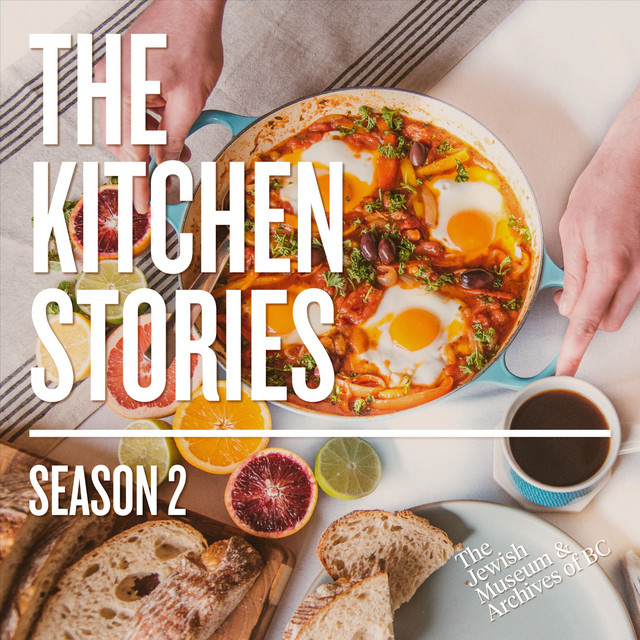Last March, Liana Glass picked up the mantle laid down by Michael Schwarz in 2018 and rejuvenated The Kitchen Stories, a podcast interrogating food and culture made in partnership with the Jewish Museum and Archives of BC. It’s always difficult to resurrect a project: besides deciding what there is to say, you need to choose what of the previous model you want to keep, develop, or pare. The result of what has been chosen and what has been shed is a really beautiful peek into the dimensionality of Jewish food, from the personal to the structural.
As a non-Jewish person, I didn’t grow up with the food, community, or heritage that this podcast explores, but Glass expertly balances a level of familiarity with an accessibility that is still dimensional.
The podcast has kept the interview style of its first season — people directly related to different aspects of food’s intersection with Jewishness speak on their experience. Glass however, makes this content more personal. The final episode explores secret family recipes through interviews with Glass’ family members, breaking down the mythos of their chocolate chip cookie recipe, and with Kat Romanow she shares how her family has navigated celebrating winter holidays in the pandemic.
The Kitchen Stories has always had a political lens (the first season platformed the African and Asian Jewish diasporas and the relationship between gender and food) and the second season continues and enriches that legacy. For example, both seasons feature a 3-part series on food insecurity in BC Jewish communities in which both Schwarz and Glass spoke with organisers of the Jewish Food Bank. But ultimately, the voices included in each series differ significantly. Glass handed the mic to people accessing these services, prioritising their real experience, not the theoretical implications of being food insecure.
This season also reacts to the political climate in which it was made. The effects of the pandemic on the experience and community of food is discussed consistently. Glass also platforms Shiva Delivers, an initiative supporting the Black Lives Matter movement during last summer’s protests in response to the murder of George Floyd. Throughout the season, Glass directly calls for support of BLM and queer people, as well as the importance of having potentially difficult conversations in the Jewish community.
Because of this explicitness, the lack of discussion of Palestine and its continued colonisation stood out to me. Palestine is only haltingly mentioned by name in the tenth episode (Feeding the Future), while occupied Palestine (referred to as “Israel” in the podcast) and Zionism are mentioned multiple times across episodes. This imbalance, and its lack of acknowledgment, feels at odds with the politic of the rest of the podcast. While Glass enacting the podcast’s politicism is important and necessary, it raises the question of that politicism’s scope and responsibility. All content centered around Jewishness isn’t obligated to directly address the genocide in Palestine, but there is a level of responsibility when that content assumes a political agenda.
Ultimately, The Kitchen Stories’ second season is a really beautiful catalogue of food and its role in Jewish culture, especially its relationship to tikkun olam (the judaic value of having a responsibility to improve the world), that, despite inconsistencies in its political precedents, extends and dimensionalizes the Jewish Museum and Archives of BC’s collection. — Clara Dubber


